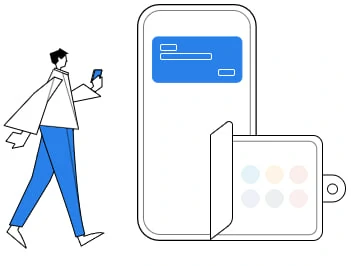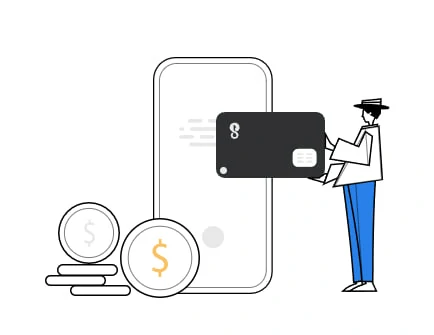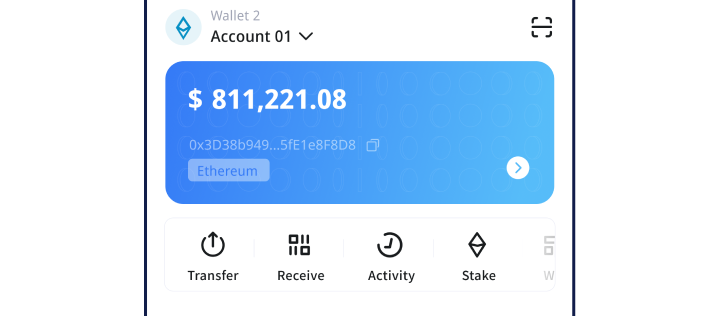# Exploring the Phantom Wallet: Understanding Unknown Tokens

Cryptocurrency wallets have become an essential tool for those navigating the increasingly complex world of digital assets. Among these wallets, Phantom has emerged as a popular choice for Solana enthusiasts, offering a seamless and user-friendly experience for managing various tokens. However, the introduction of unknown tokens can create confusion for many users. This article delves into Phantom Wallet’s features, the phenomenon of unknown tokens, and provides insights into managing these assets safely and effectively.
## What is Phantom Wallet?
Phantom Wallet is a decentralized cryptocurrency wallet tailored specifically for the Solana blockchain. Launched in 2020, it quickly gained popularity due to its intuitive interface and robust features. Users can store, send, receive, and swap various cryptocurrencies directly from their browser or mobile device. Phantom also supports staking, allowing users to earn rewards by participating in the network.
### User Interface and Experience
The user interface of Phantom Wallet is designed with simplicity in mind. New users can quickly navigate the wallet’s features, while experienced users have access to advanced functionalities. The wallet provides a clear overview of assets, recent transactions, and staking opportunities. Additionally, its integration with decentralized applications (dApps) on the Solana blockchain enhances usability, allowing users to interact seamlessly with various DeFi platforms, NFT marketplaces, and gaming ecosystems.
## The Role of Tokens in the Cryptocurrency Ecosystem
Tokens are integral to the blockchain ecosystem, serving various purposes depending on their design and utility. In the Solana network, tokens can represent assets, provide governance rights, or act as utility tokens for accessing services. Understanding the types of tokens within the ecosystem is crucial for users who want to engage deeply with the crypto space.
### Types of Tokens
1. **Utility Tokens**: These tokens provide users access to a specific service or product. For instance, a token might be required to participate in a decentralized application or to pay for transaction fees.
2. **Security Tokens**: These represent ownership in a real-world asset, such as equity in a company or real estate. They often require compliance with regulatory frameworks.
3. **Governance Tokens**: Holders of these tokens can participate in decision-making processes within a blockchain project, influencing future developments and protocols.
4. **Non-Fungible Tokens (NFTs)**: As unique digital assets, NFTs can represent art, collectibles, or other unique items. Each NFT has distinct attributes, making them valuable in digital marketplaces.
5. **Stablecoins**: These are pegged to a stable asset, usually fiat currency, to minimize volatility. They serve as a bridge between traditional finance and the cryptocurrency world.
## Understanding Unknown Tokens: What Are They?
When users encounter “unknown tokens” in their Phantom Wallet, it often refers to tokens that are not recognized by the wallet interface. This can happen for several reasons, such as new token launches, unverified contracts, or simply tokens that haven’t been added to the wallet’s supported list.
### The Significance of Unknown Tokens
1. **New Opportunities**: Unknown tokens can represent newly launched projects that may have potential for growth. Early investors might find opportunities in unrecognized tokens before they gain wider attention.
2. **Risk Factors**: Unknown tokens can also pose significant risks. Some could be associated with scams, poorly designed projects, or lack adequate support and liquidity. Users should exercise caution and conduct thorough research before engaging with these assets.
3. **Market Speculation**: The unknown nature of certain tokens can lead to speculative trading, where users buy based on speculative trends rather than any inherent value. This can amplify the risk and volatility associated with such tokens.
## Managing Unknown Tokens in Phantom Wallet
For users who wish to explore unknown tokens in their Phantom Wallet, it’s essential to approach the situation with care. Here are some best practices for managing these assets:
### Conducting Thorough Research
Before interacting with an unknown token, users should perform due diligence. This can include:
1. **Investigating the Project**: Look for a detailed project white paper, the team behind the project, and their backgrounds. Understanding the use case, functionality, and long-term vision is crucial.
2. **Checking Community and Social Proof**: Engage with communities on platforms such as Twitter, Discord, or Reddit. The sentiments of other users can provide insight into the project’s legitimacy.
3. **Assessing Market Data**: Utilize market tracking tools to evaluate trading volume, price history, and liquidity. A lack of significant trading volume can indicate limited interest in the token.
### Adding Unknown Tokens to Phantom Wallet
If users decide to proceed with managing unknown tokens, they must add them to their Phantom Wallet.
1. **Accessing the ‘Manage Token’ Feature**: Users can navigate to the settings or token management section of their wallet.
2. **Inputting Contract Address**: To add an unknown token, users need the token’s contract address. This address can often be found on the project’s official website or trusted resources.
3. **Verifying Token Information**: After inputting the contract address, users should confirm that the wallet recognizes the token properly. Always verify before making any transactions.
### Trading Unknown Tokens Responsibly
When trading unknown tokens, users should:
1. **Start Small**: Begin with a small amount to mitigate potential losses. This allows exploration without significant financial risk.
2. **Set Pending Orders**: Use limit orders when trading unknown tokens to avoid unfavorable market conditions that could lead to unexpected losses.
3. **Monitor Performance**: Regularly track the performance of the token and remain vigilant about market changes or news developments. This helps users make informed decisions about holding or selling.

## Security Considerations for Unknown Tokens
The security of one’s assets remains paramount, especially when dealing with unknown tokens. Here are critical aspects users should prioritize:
### Beware of Scams and Fraud
The cryptocurrency landscape is rife with scams, particularly regarding newly introduced unknown tokens. To avoid falling victim:
1. **Do Not Share Private Keys**: Never disclose your private keys or seed phrases, as these provide full access to your wallet.
2. **Check Contract Authenticity**: Ensure that the contract address you are interacting with is legitimate. Scammers can create look-alike tokens, leading to financial losses.
3. **Avoid Phishing Links**: Be wary of links or messages from unknown sources urging you to invest in new tokens or platforms. Always use official project websites.
### Regularly Update Security Measures
1. **Enable Two-Factor Authentication (2FA)**: While Phantom itself may not provide this, enabling 2FA on associated accounts (like email) adds an additional layer of security.
2. **Keep Software Updated**: Regularly update wallet software and operating systems to defend against security vulnerabilities.
3. **Use Hardware Wallets**: For substantial holdings, consider a hardware wallet for enhanced security. This helps mitigate risks associated with online platforms.
## Conclusion: Navigating Unknown Tokens with Confidence
The emergence of unknown tokens introduces both opportunities and challenges for cryptocurrency users. Phantom Wallet, with its user-friendly features and seamless integration with the Solana blockchain, provides an excellent platform for exploring the vast possibilities of digital assets.
However, as with any investment, users must approach unknown tokens with caution, armed with thorough research and an understanding of the associated risks. By following best practices for token management, conducting due diligence, and prioritizing security, individuals can navigate the world of unknown tokens with greater confidence, unlocking their potential while minimizing risks.
In the rapidly evolving landscape of cryptocurrency, being informed and responsible can make all the difference in securing both assets and peace of mind.






